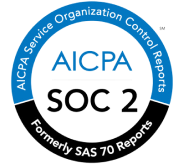Table of Content
- Want to skip the content?
- Schedule a demo.
- What is HR analytics?
- What Role Does HR Analytics Play in HRM?
- Benefits of HR Analytics
- Conclusion
- FAQs
- What skills are required to do HR analytics?
- How uKnowva HRMS helps HR analytics to manage their jobs?
- What are some internal sources for HR analytics?
- More Blogs to Explore
The role of HR analytics in HRM or Human Resource Management is quite crucial, given the rapid changes in the digital transformation of human resources. By leveraging data and analytical techniques, HR analytics enables organisations to make informed decisions and improve their HR processes.
It helps HR professionals to measure and analyse workforce metrics, such as employee performance, turnover rates, and engagement levels. With these insights, HR teams can identify trends, predict future outcomes, and develop strategies to enhance talent acquisition, retention, and development.
By aligning HR initiatives with organisational goals, HR analytics empowers businesses to optimise their workforce, boost productivity, and foster a positive work environment, ultimately driving success and growth.
Moreover, HR analytics in a smart HRMS software helps to handle the data efficiently and securely. Let’s explore the impactful role of HR analytics in HRM more in this blog post, and see what it holds for you.
Want to skip the content?
Schedule a demo.

What is HR analytics?
HR analytics is the practice of applying data analysis and statistical methods to gain insights. It helps in making informed decisions about various aspects of human resources management.
It involves collecting and analysing data related to employees, such as recruitment, performance, engagement, and retention. Thus, improving organisational performance and achieving strategic objectives.
By using advanced tools and techniques, HR professionals can extract valuable information from large amounts of data. Allowing them to make data-driven decisions that align with business goals. They provide a deeper understanding of workforce dynamics. It enables organisations to optimise their talent management strategies.
It includes identifying patterns and trends that predict future workforce needs. It evaluates the effectiveness of HR programs and policies.
By leveraging HR analytics, companies can enhance employee productivity, reduce turnover, and align their workforce with changing market demands.
It also helps in identifying skill gaps, facilitating succession planning, and enhancing employee satisfaction and engagement. Ultimately, it empowers HR professionals to make proactive decisions and create strategies that maximise the value of their organisation's employees.
What Role Does HR Analytics Play in HRM?
HR analytics plays a great role in HRM as they help in transforming corporate meets for mergers in today’s market. In the field of human resources, it gives better insights, infographics, and an overall view of various processes.
The recruitment process, evaluation, and analysing have got a significant breakthrough in respect of candidates’ credentials on different metrics. It gives a whole new meaning to HRM and makes it easier to handle than other managerial job roles.
Data is the fundamental unit that plays a basic role in the HR sector. Decision taken through data-driven metrics helps to take tactful measures. The complete HRMS software has various tools and features that streamline talent management, training, development, and engagement needs.
Benefits of HR Analytics
As HR analytics has proven itself as a great source, the usage of it increased over the last few years. The benefits you get from it are exceptional and the results obtained from them are outstanding. Let’s have a look at some important benefits of HR analytics in HRM:
-
Reduction in attrition rate
HR analytics identifies the hidden patterns and trends by using data that is collected daily in human resource management software like uKnowva. This data helps to maintain retention in your organisation and also provides solutions to make it improved. HR analytics use employee engagement, leaves and attendance, and project management data to highlight top performers from the rest of the workforce.
It also shows the tenure of the employees and how long or often the employees have been interacting on the tool, as a source of engagement. From such highlights and reports, HRs and senior management gets to know if the employees are serious about their growth in the same organisation or not.
-
Quality Recruitment
The reporting tool or engine highlights certain reports for recruiters in the HRM software. These reports show how efficient the hiring process is. The recruiters can tweak or customise these reports at the time of installing uKnowva HRM into their business model.
Knowing the efficiency of the job portal and search engine page is important. Recruiters will know if they are hiring and onboarding people from the right and cost-effective resources or not.
In time, they can tweak their hiring strategies and refine the quality of the recruitment of new hires.
-
Builds a Productive Workforce
Every employee has their own set of levels and achievements. The productivity levels are not also constant. It varies from time to time, depending on the employee's performance. To keep a check on employees’ working hours, assigned work, their interest in the assigned work, and overtime hours, all these give employee-related data that helps HR analytics to make sure which employee is performing well and who needs extra motivation to work accordingly. All the data collected helps in planning employee productivity strategies for their performance increase.
Conclusion
HR analytics in HRM plays a titular role in taking human resource departments to greater heights. uKnowva HRMS offers various metrics that help in calculating revenues, provide data about job offers, provide insights that lead to unsatisfactory employee engagement, and many more.
FAQs
What skills are required to do HR analytics?
To excel in HR analytics, professionals need a blend of analytical, technical, and interpersonal skills. Proficiency in data analysis and statistical tools is essential, along with a strong understanding of HR principles and practices.
How uKnowva HRMS helps HR analytics to manage their jobs?
uKnowva HRMS lends a helping hand in managing the role of HR analytics. With the integration of the reporting engine and tool with other core modules like leaves and attendance, payroll, performance management, workflow automation and others, uKnowva helps to bring transparency in decision making for senior HR management and officials in the company.
What are some internal sources for HR analytics?
HR analytics needs data from various sources to operate uniquely. Its internal data sources include social intranet data, engagement data, leaves and management data, performance data, and payroll data.












